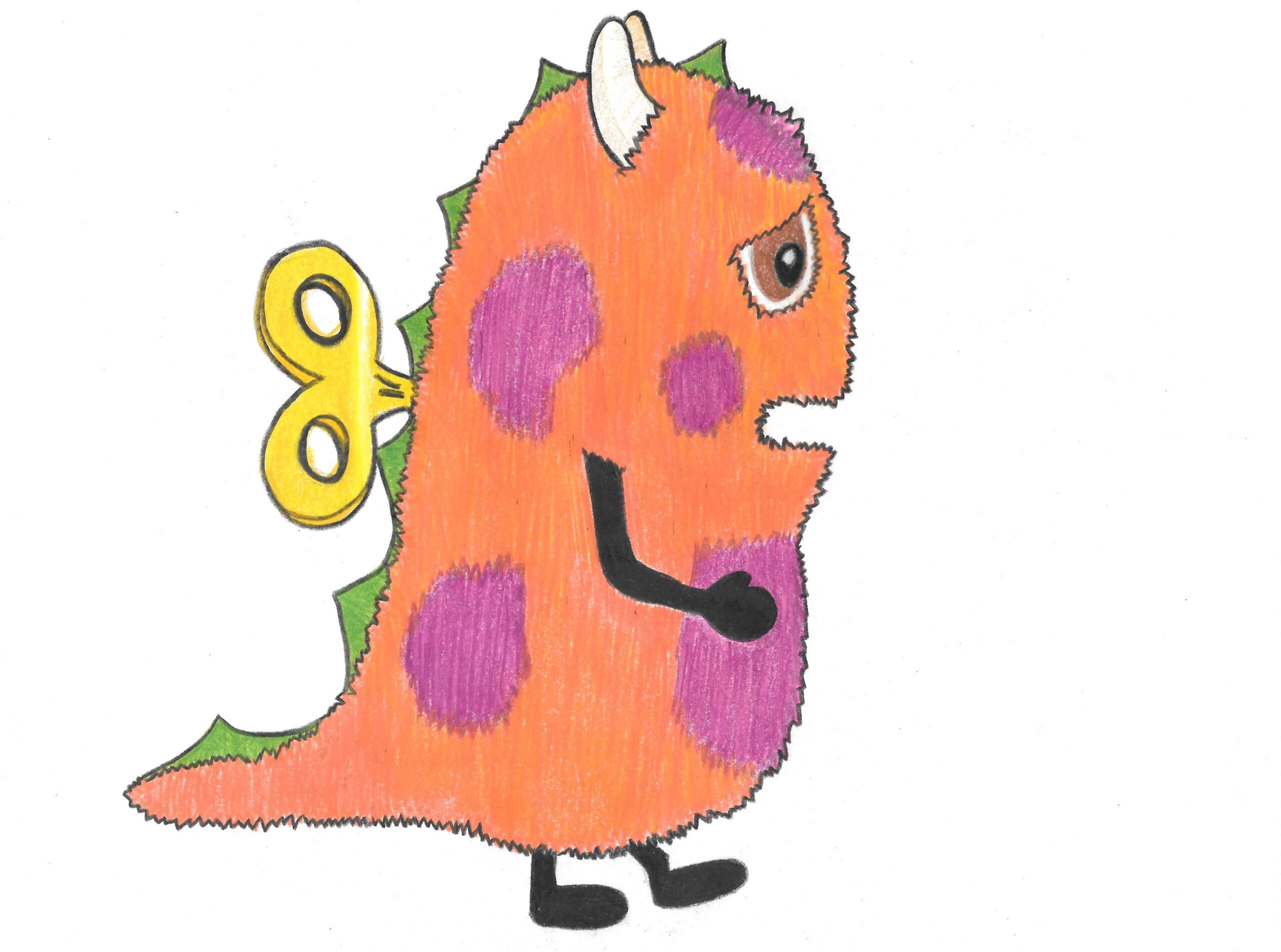It happens to the best of us:
We’re writing along, generating and drafting story idea after story idea, sending out submissions Oprah-style (everyone gets one!), dutifully adding those submissions to our Submittable, Moksha, or Duotrope accounts, and purposefully not re-reading the pieces we’ve already sent out so as to avoid the existential dread that accompanies a spotted typo when suddenly, as if Father Time himself came down from the clouds and reached out a gigantic hand to detach some invisible power source, our energy runs out.
Zero percent left.
Drained.
Like a bucket with a hole in the bottom, stories seem to leak away, the submission-tap slows, then stops.
An opposite of the Energizer bunny, who just kept going and going and going, submission fatigue forces us to stop, consider whether the laundry list of submissions from which we’re hearing crickets actually matters. Is anyone sitting on the other side of those submissions inboxes? Is anyone reading? Should we even bother?

It’s easy to become fatigued when submitting your writing to magazines, journals, small presses, and agents, especially when the bulk of submissions are met with blaring silence. The only thing worse than silence, perhaps, are form rejections—those unoriginal, “we’re sorry but” pass-on-it emails that reflect none of the personality and panache you put into your submission and cover letter in the first place. No matter how they happen, rejections sting.
Discouragement is something most writers know a thing or two about. We’re used to being told “no,” or hearing no response at all. We’re used to chaotically withdrawing submissions when we’ve reached our no-news breaking points. We’re used to putting away the slog and suck and ruggedly pulling forth creativity just to start afresh with a blank page, a new cast of characters, and a renewed sense of optimism. We’re used to white-knuckling our storytelling convictions, thank you very much, because we know that the right opportunity, the right publication, the right themed call is just around that proverbial corner. But we’re also human and subject to the range of human emotions that comes with being ignored or let down repeatedly.
When I look at my own Submittable account, a pattern emerges fairly quickly. Seems I come down with some form of submission fatigue about every six months or so. For several months, I write and submit pieces for consideration, track all the rejections (oh, so many rejections!), and eventually lose my steam. Because I am decidedly not the Energizer bunny, I can’t just keep going with no inspiration or encouragement, no experience, no hope. My submission battery, then, runs on optimism and creativity. Here are some ways I charge up my creativity and optimism for the next bout of submissions.
Go outside for inspiration
Many writing advice articles will suggest that you write in a new space: Pick a new room of your house! Go to a coffee shop! Work from your porch or balcony or rooftop! All these suggestions, though, keep you trapped indoors and probably too close to your computer or notebook for a proper break. And unless you’re severely photosensitive, staying indoors all the time is a terrible idea.
UC Davis shared back in 2023 that “nature can help us improve our thinking, reasoning, and other mental abilities.” Turns out, being in nature helps us relax, find pleasure, and concentrate better. In fact, vitamin D is so powerful that it directly affects our cognitive resilience, which makes sense. Earth itself is the genesis of all creation, and when you go outside without an agenda except to be a careful observer, you get to witness whole lives outside your normal spectrum of possibility.
I know that when my submissions batteries are so empty my storytelling tap has shut off, the only thing I can do is go outside. My kiddo and I will slip on our sneakers for a neighborhood walk, or fling ourselves, barefoot, into the backyard to run around, sniff some early spring flowers, and feel the grass on our toes. To be in the seat of creation, to be a part of the earth itself, is to call forth your own creation and recharge. After a few hours (or days or weeks; no judgment here, you mountain person, you!) of allowing yourself to be fully immersed in nature and soaking up all those sun-derived vitamins, you’ll find your disposition cheerier, your creative flow faster, your optimism bolstered. You’ll be ready to submit again.
Consume nutritious artwork for vitality
Creating stories for submission is exhausting, as we’re constantly tapping our gray-matter resources for newness. When exhausted by the very act of creation, it’s time to consume. Consume nutritious food, of course, to replenish critical vitamins, fats, and minerals for optimal health. But also, consume nutritious art.
Nutritious artwork fuels the soul. Whether you consume books, movies, television serials, or music, whether you visit museums, or attend poetry readings, spend time consuming the kind of art that made you want to write stories in the first place. During periods of submission fatigue, I often fling myself into the music I once loved and search for new acts and tunes to love today. I draw pictures (many of which you’ll never see despite my new quest to hand-draw all my writing-advice-column images), color with my kiddo, and paint. I cook new-to-me dishes loaded with color and flavor, or visit the library for a new read, or search our neighboring towns for a new walking path on which to take in nature’s canvas and sink into the birdsong symphony.
Since you’re writing and submitting, I’m going to go ahead and assume you’re also reading extensively. Writing and reading do often go hand in hand, after all. But really think about the other forms of artwork you may not have been consuming so voraciously. Let artwork wrap its creative arms around you until you feel that spark again.
Allow quality sleep to rejuvenate your creativity
Many of us are writing and submitting our pieces in the cracks of our days after the paying work is done, the kids and house and pets taken care of, meals served. We move our creative writing into the margins, opening our laptops during late-night sessions fueled by copious amounts of caffeine.
Artists—writers, specifically—often seem to adopt an “I’ll sleep when I’m dead” attitude, but this kind of nonsense can actually lead to an early death. As scientist and professor of neuroscience and psychology, Matthew Walker, explained in his book, Why We Sleep: Unlocking the Power of Sleep and Dreams, “[A] tired, under-slept brain is little more than a leaky memory sieve, in no state to receive, absorb, or efficiently retain an education.” While the quote was related to underslept teenagers and school-aged kids, the lesson itself is true for all humans (and honestly validated the experiences of my sleep-deprived teenage self).
Simply put, you cannot be your best you if you don’t get enough quality sleep. Too little sleep functionally trashes your higher cognitive processes and effectively crushes creativity and problem-solving abilities.
If you’re the kind of writer who is constantly burning the midnight oil and then powering through your sleep-deprived days, you’re doing yourself a creative disservice and probably sabotaging your own success without realizing it. Clear heads show us clear creative paths and the steps we can take to walk them without tripping and faceplanting.
So sleep, deeply and well and without shame or judgment. And when someone asks how you, writer, can dare to be so lazy when others are racing toward burnout, you can say with confidence that quality sleep is crucial to creativity and art, that those extra hours in bed are, in fact, work of a most important kind.
Getting published looks different for everyone, and while submission fatigue is very real, we all deal with it differently too. What works for me many not work for you. Whether you go outside, consume new art, sleep, or do something else to recharge your creative batteries and fill your story well with optimism that yes, writing stories is worth the effort, I’d love to hear about it.
Share your favorite or go-to way to overcome submission fatigue in the comments.
Happy writing!
♥ Fal
Prefer video?
Join me on the MetaStellar channel:

Fallon Clark is a story development coach and editor with more than a decade of experience in communications, project management, writing, and editing. She provides story development and revision services to independent and hybrid publishers and authors spanning genres and styles. And in 2018, she had the joy of seeing Forever My Girl, one of her earliest book projects, on the big screen. Fallon’s writing has been published in Flash Fiction Magazine and The MicroZine. Find her online at FallonClarkBooks.Substack.com, or connect with her on LinkedIn or Substack.


Although I haven’t been submitting lately, your advice to get out into nature for a needed change really resonates with me right now. After being confined to the house for three months, except for doctor appointments, I finally was allowed to go swimming yesterday. Not only did I sleep better last night, but my brain has finally started to think about my novel again. It was a complete reboot!
I know the feeling! Something about birdsong, fresh breeze, and the awakening of spring really juices the creative batteries.